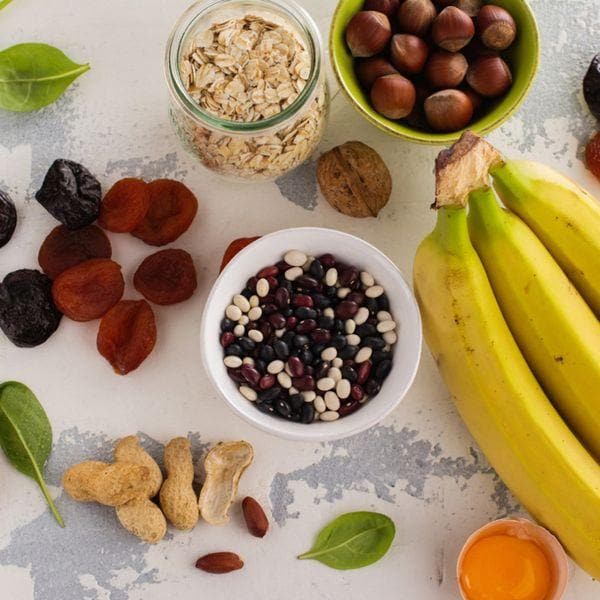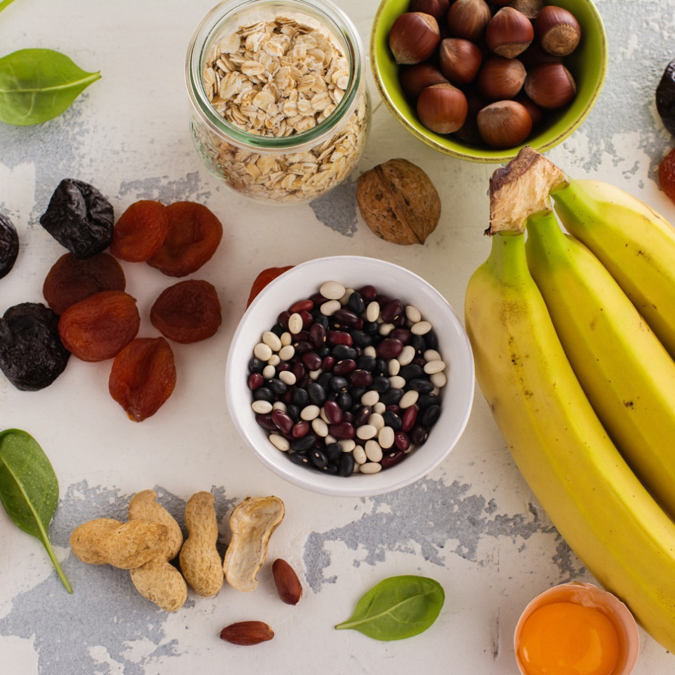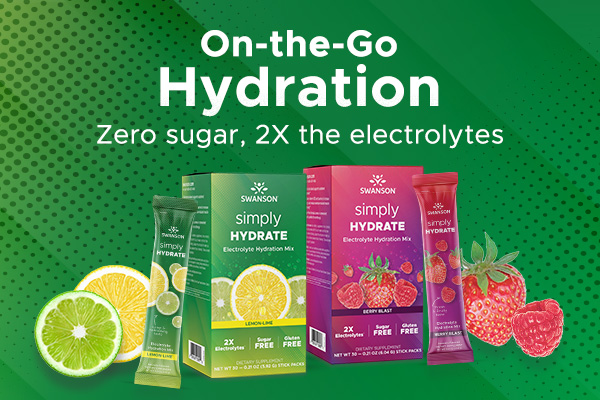Understanding the Importance of Potassium
When it comes to low levels of vitamins and minerals, it can feel a lot like a “who’s who” popularity contest. You hear about the essential vitamins like vitamin D, calcium, magnesium and maybe even vitamin C, plus what to do to boost your levels and get back on track. But like a good dramatic film, there are also underdogs worth rooting for. In this case, potassium is our underdog, and it’s important that you learn about potassium and the signs of low potassium levels.
What is Potassium?
Potassium is critical to your body’s normal everyday functioning. It's a type of electrolyte that can help nerve function and muscle contraction. It helps your heartbeat stay regular. It also contributes to cellular nutrition and detoxification. It's even been linked to healthy blood flow.1
The recommended daily intake for potassium is 4,700 mg per day, which may sound like a lot, but considering how many potassium-rich foods are readily available, hitting that mark on a consistent basis isn’t much of a challenge. That said, it is possible to eat all the right high potassium foods and still have low potassium levels.
What is Potassium Deficiency & What Causes Low Potassium Levels?
Low potassium (hypokalemia) can be thought of as lower than normal potassium levels in the blood. Typically, blood potassium levels should be around 3.6 to 5.2 millimoles per liter (mmol/L).2
The most common cause of low potassium levels can be a result of increased urination. Vomiting and diarrhea can also result in excessive potassium loss from the digestive tract.
Potassium Needs
Every cell in your body requires potassium to function properly, so one of the first, albeit somewhat vague, indication of low potassium is general fatigue. If you know you’re getting enough sleep, eating a healthy diet and exercising regularly, but still find yourself exhausted throughout the day, you could be experiencing the effects of low potassium levels.
Weakness, a variation of fatigue, is another sign of low potassium, as are muscle spasms and muscle cramps. Potassium plays a role in smooth muscle contraction, so when levels are low, you might see an increase in cramps, especially during exercise (as an electrolyte, you lose a lot of potassium through sweat). If you can’t figure out any other culprit to your fatigue, check your diet first and make some adjustments, then consult with your doctor if you don’t notice any changes.
Uneasy Gut (& Poor Diet) & Potassium Deficiency
There are hundreds of reasons why your stomach might be upset on any given day, or why you’re suddenly feeling a bit bloated, cramped or constipated. Low potassium levels have a way of slowing down your body’s natural rhythms and processes (like muscle performance), and your digestive system is susceptible to those same slowdowns.
Look at your plate the next time you sit down for a meal. What do you see? Any bursts of color, or just bland shades of “meat and potatoes”? Any of these potassium deficiency symptoms can often be traced back to poor dietary choices. If you’re eating a typical western diet, chances are good you’re not meeting your daily potassium requirements and it’s time to add in some fresh fruits and vegetables and even consider adding a potassium supplement to your regular routine.
Potassium Needs & Heart Health
Very low potassium levels can also affect heart health.2 If you have any heart or cardiovascular health concerns, it’s best to call your doctor and get checked right away.
Changes in cardiovascular health may be linked to potassium levels, including blood flow. Potassium matters because it helps offset sodium. Many people eat too many salty foods and not nearly enough fruits and vegetables, which throws the balance off and contributes to blood flow concerns.
Foods High in Potassium
The good news is it’s easy to boost your potassium intake with just a few simple changes to your regular diet. The usual suspects like leafy greens, fresh fruits and root vegetables are all foods rich in potassium. If you ever had a coach tell you to eat more bananas, it’s because bananas are loaded with potassium and can help with muscle performance. Yet, you’ve got more options than just bananas. Foods high in potassium include:
- Leafy greens like spinach and collards
- Fruit from vines like grapes and blackberries
- Root vegetables like carrots and potatoes
- Citrus fruits like oranges and grapefruit
Want more? Check out Top Potassium Food Sources & Potassium Health Benefits.
You be well, now.
Swanson

About Lindsey Toth, MS, RD
Lindsey is a nationally recognized registered dietitian and nutritionist with a soft spot for ice cream. She empowers people to take charge of their health by finding the balance between the pleasure and nourishment in food. Her philosophy is that you should take care of your body because it’s the only permanent home you have. It’s what inspired her to pursue a career in nutrition.
*These statements have not been evaluated by the Food and Drug Administration. These products are not intended to diagnose, treat, cure, or prevent any disease.
Sources
1. Potassium. MedLine. Read source
2. Low Potassium (hypokalemia). Mayo Clinic. Read source
3. Prevention: 5 Signs You May Be Low In Potassium. https://www.prevention.com/health/5-signs-you-may-be-low-in-potassium




